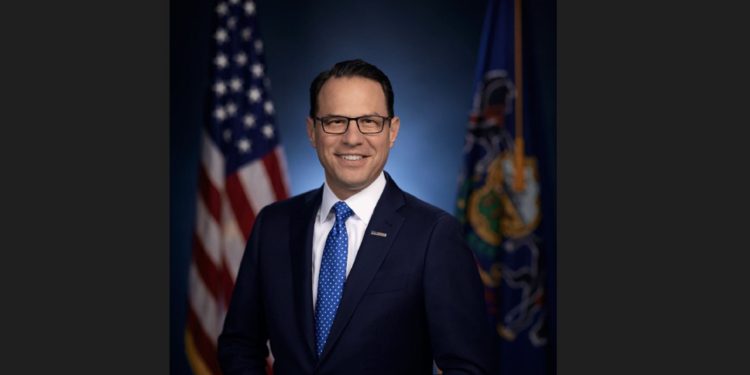Philadelphia, PA- Gov. Josh Shapiro on Tuesday announced his administration is taking action to limit access to xylazine, commonly known as “tranq.”
It’s a powerful sedative approved for veterinary use on large animals, but one that is increasingly found in Pennsylvania’s illicit drug supply.
Acting Secretary of Health Dr. Debra Bogen has submitted a notice of intent to temporarily add xylazine to the list of schedule III drugs under Pennsylvania’s Controlled Substance, Drug, Device and Cosmetic Act.
Bogen will also submit a notice of intent to schedule nitazines, a class of synthetic opioids that have never been approved for use in the United States, as a schedule I drug.
The notices will be published in the Pennsylvania Bulletin on Saturday, April 22, 2023. The Office of Attorney General will receive a copy of the notices and has 30 days to comment.
“Xylazine is a powerful animal sedative that should never be ingested by humans and is compounding our fight against the opioid crisis – and today, my Administration is taking action to keep it out of our communities and protect Pennsylvanians,” said Shapiro.
“The steps we are taking today will help ensure this dangerous drug can’t be diverted from legitimate sources to the drug dealers harming our communities, while preserving its important use on animals.
“Xylazine has a real purpose for veterinarians, but is being abused by drug dealers and harming those suffering from substance use disorder.
“My Administration is committed to helping Pennsylvanians get the treatment they need, and we will work with our partners in law enforcement to get these drugs out of our communities and bring the drug dealers poisoning our communities to justice.”
Scheduling a drug requires manufacturers and distributors to not only verify that a practitioner, like a veterinarian, is licensed but that they are also authorized to receive a controlled substance.
Additionally, this action allows for more checks in an ordering system, to ensure the proper address for delivery and receipt of a controlled substance, often requiring the practitioner themselves to sign for the product.
Scheduling further requires practitioners to take steps to minimize theft and diversion, including accurate recordkeeping, limiting staff access to the product and ensuring it’s stored in a secure location.
People exposed to xylazine often knowingly or unknowingly use it in combination with other drugs, particularly illicit fentanyl; the medication is used to lengthen the opioid’s euphoric effects.
Xylazine is a growing issue across Pennsylvania. In 2017, xylazine contributed to 90 overdose deaths, but in 2021, it contributed to 575 overdose deaths across 30 counties – an increase of over 600 percent in just five years.
It’s also becoming increasingly prevalent in Philadelphia – in 2021, the City of Philadelphia reported that 90 percent of street opioid samples contained xylazine.
“Across the country and here in Pennsylvania we are seeing an alarming increase in the number of overdose deaths in which xylazine was a contributing factor,” said Bogen.
“Our focus remains on harm reduction strategies and helping people get treatment for substance use disorders. At the same time, we need to take action to protect people from xylazine that is increasingly found in the drug supply.”
Last year, the FDA warned that xylazine is not safe for use in humans. Xylazine use may also result in skin ulcers with wounds that excrete puss, have decaying tissue and bacterial infections, which can lead to amputation.
While opioid-reversing medications such as naloxone will not reverse the effects of xylazine itself, it can still be effective in reversing the effects of the particular opioid involved and should still be administered if symptoms consistent with possible opioid overdose are present.
If xylazine was involved, the person may still appear sedated after their breathing has returned.
Anyone seeking substance use treatment or recovery resources for themselves or a loved one can call the toll-free PA Get Help Now helpline at 1-800-662-HELP (1-800-662-4357), or go online to the Addiction Treatment Locator, Assessment, and Standards Platform (ATLAS) at treatmentatlas.org.
ATLAS can help Pennsylvanians find and compare addiction treatment services and facilities to find the one that will work best for their family.




